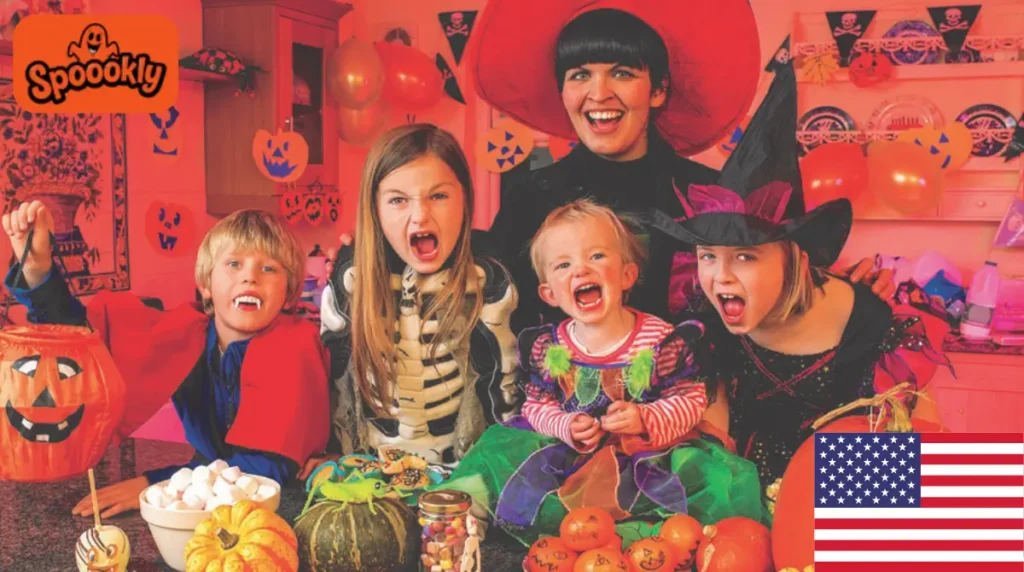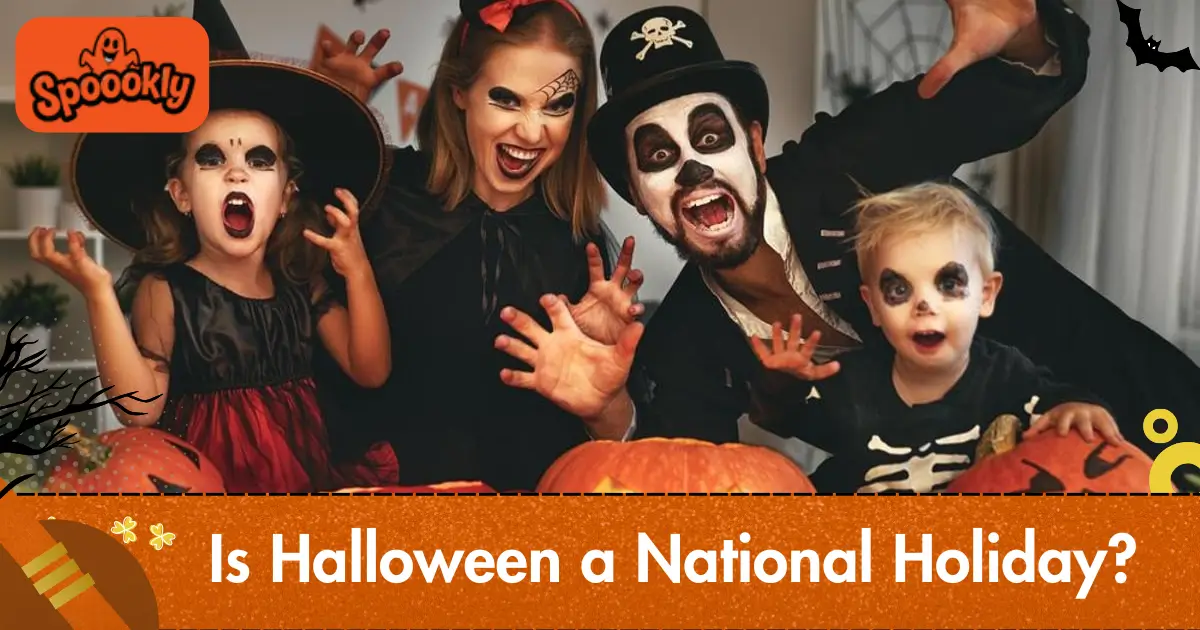Halloween is one of the most celebrated days of the year, but legally, it is not a national holiday. In the United States and most other countries, October 31 is treated as a regular workday.
Businesses stay open, schools hold classes, and banks don’t close. Yet, if you look around on Halloween night, the parties, costumes, and trick-or-treating might make it feel just as big as Christmas.
This mix of cultural excitement with no legal recognition often confuses people. So let’s break it down properly.
What Does “National Holiday” Actually Mean?
A national holiday, also called a federal holiday in the United States, is a day that is officially recognized by the government. On these days:
- Government offices close.
- Federal employees get paid time off.
- Most banks and many schools follow suit.
- Businesses may also close or adjust hours.
Think of holidays like New Year’s Day, Independence Day, and Christmas. These are written into law and recognized by the U.S. Office of Personnel Management.
That’s where the difference lies. Some holidays are cultural (widely celebrated but not legally recognized), while others are official public holidays with guaranteed closures. Halloween falls firmly into the cultural side.
Is Halloween a National Holiday in the United States?
The U.S. recognizes 11 federal holidays. Here’s a quick rundown of some of them:
- New Year’s Day (January 1)
- Independence Day (July 4)
- Thanksgiving Day (fourth Thursday in November)
- Christmas Day (December 25)
Halloween is not on that list. October 31 is not designated as a federal holiday, which means schools, post offices, banks, and government agencies run on normal schedules.
Sure, you might see kids wearing costumes to school or offices hosting small Halloween parties, but legally, the day holds no special status. It’s business as usual, with a whole lot of pumpkins on the side.

Why Do People Think Halloween is a Holiday?
Halloween looks and feels like a holiday, even though it isn’t official. Every October, entire neighborhoods decorate with glowing pumpkins, creepy skeletons, and giant spider webs. Families spend weeks planning costumes, and kids wait all year for trick-or-treating.
The scale of the celebration is enormous. Billions of dollars go into candy, costumes, decorations, and parties. According to surveys, Halloween is one of the top spending holidays in the United States, right behind Christmas.
With that kind of cultural power, it’s easy to see why people assume it must be recognized legally.
But there’s the difference: Halloween is a cultural holiday, not a legal holiday. In short, it feels like one, but it doesn’t give you a day off.
Halloween in Other Countries: National or Not?
Halloween isn’t just an American obsession. It’s celebrated in many parts of the world, but rarely as an official public holiday. Let’s take a quick global tour.
Ireland and Scotland
Halloween traces back to Samhain, an ancient Celtic festival marking the end of harvest and the start of winter. Today, Ireland and Scotland host parades, bonfires, and community events. Despite its deep history there, it’s still not a national holiday.
Mexico
Halloween is sometimes celebrated in Mexico, but the spotlight is on Día de los Muertos (Day of the Dead), held November 1-2. That event has official recognition, but October 31 is not a holiday in itself.
Canada
In Canada, kids go trick-or-treating just like in the U.S., and people decorate houses with pumpkins and ghosts. Yet, it’s not listed as a federal holiday.
United Kingdom and Australia
Both countries see costume parties, pumpkin carving, and themed events. Still, October 31 remains a normal workday.

Religious and Historical Background
Halloween’s roots are older than most people realize. The name comes from All Hallows’ Eve, the evening before All Saints’ Day on November 1. The Christian church observes All Saints’ Day as a time to honor saints and the faithful departed.
Before Christianity, the Celtic people celebrated Samhain, a festival marking the transition from summer to winter.
People believed spirits could cross into the human world during this time. When Christianity spread, some of those customs blended with church traditions.
The result? A holiday with both pagan roots and Christian connections, but still no legal holiday status.
Quick FactsHoliday?
Here’s a simple table that clears up the confusion:
| Country | Celebrated? | National Holiday? | Notes |
|---|---|---|---|
| USA | Yes | No | Cultural only, no legal status |
| Canada | Yes | No | Commercial, widely celebrated |
| UK | Yes | No | Strong traditions, no day off |
| Ireland | Yes | No | Samhain roots, public events |
| Mexico | Yes | No | Día de los Muertos (Nov 1-2) is official |
Conclusion
So, is Halloween a national holiday? The answer is simple: No.
Halloween is one of the most popular cultural events of the year, celebrated with costumes, candy, parties, and parades.
Yet, it’s not recognized as a federal or national holiday in the United States or in most other countries. That means no guaranteed day off, no government closures, and no official status.
Still, the lack of legal recognition doesn’t stop millions from celebrating it in full swing. Whether you’re handing out candy, hosting a spooky movie night, or attending a parade, Halloween is very much alive in culture if not in law.
If you love Halloween as much as I do, remember: you don’t need a national holiday stamp to enjoy it. Celebrate it your way, and check out the guides on Spoookly.com for parades, traditions, and ideas worldwide.
FAQs
No, Halloween is not a national holiday in the United States. It is a cultural celebration, but October 31 is treated as a regular workday.
No, there is no paid time off or government closure for Halloween. Schools, banks, and offices remain open, though some may host themed events.
Halloween has never been legally recognized by the U.S. government. It’s a cultural event, not a federal or state-mandated holiday.
October 31 is Halloween, but it is not an official holiday. November 1 is All Saints’ Day, which is a Christian feast day, and November 2 is All Souls’ Day.
Yes, Halloween means All Hallows’ Eve, the evening before All Saints’ Day. While linked spiritually, Halloween itself is not a holy day of obligation in most traditions.

